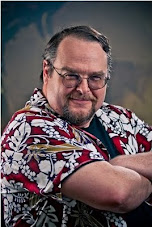Yeah, it first broke through a couple days ago, but I only pay attention to the end of day closing for the purposes of these discussions.
So, for an administration that apparently hates Wall Street and the investor class, Wall Street and the investor class has been doing pretty darn OK. They're back up (in aggregate numbers) to where they were before we tumbled down this particular rabbit hole in May of 2008. Would that the rest of our economy be that fortunate, but the Wall Street is what they call "a leading indicator", which means that when its good, prosperity is supposedly just around the corner, and when it sneezes, the rest of us catch cold.
Instead let's talk about gas prices.
Over the past few months, I've been noticing that gas prices have been slowly, gradually declining. Not enough to suddenly want to drive to Miami, but still a slow deflating. No one seems to have noticed. Then, in the past couple weeks, it has made up that decline and moreso. So NOW it's a news story.
Apparently, the yearly fall and rise of gas prices is a regular feature of the economic tides, and centers around the use of butane in the gas mix. Gas prices go down in fall and rise in spring. And that is part of it. And locally, one of our local refineries went boom a few weeks ago, so that's a part of it for region.
But another part is speculation - we've got a drumbeat going on right now for yet another war in the Mideast, and that will mean disruption, so people are betting on that disruption, which drives prices up. AND after doing so, you get to blame the administration for letting you free market all over the place. Its a sweet deal.
In reality, it seems that in the past couple years, production is up, consumption is down, and we as a nation are verging on becoming an oil exporter. Which means (according to the columnist) that stable, high gas prices are a good thing.
Nah, I'm not buying it. High prices are an irritant. The simple fact is that gas prices go up because the oil companies can get away with it, passing along any potential risk, real or imagined, to the consumer. And the blame to someone else.
More later,
The Cat Report
-
Glad to learn that Baseball has gone to his new home and by now is getting
to know his new people.
The cat room now has three cats: senior cat Bettie...
4 days ago


